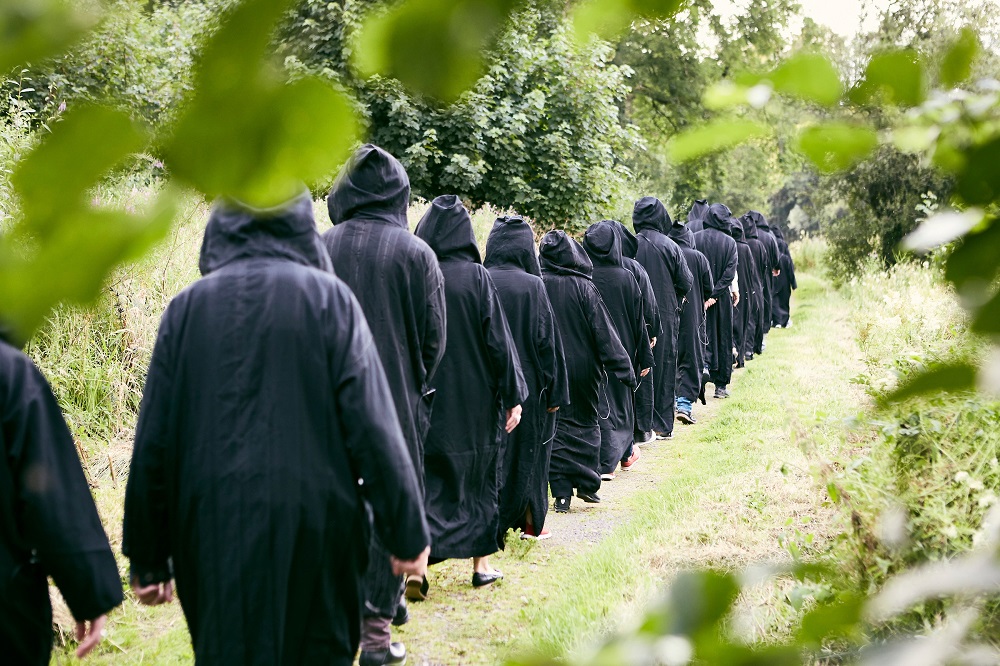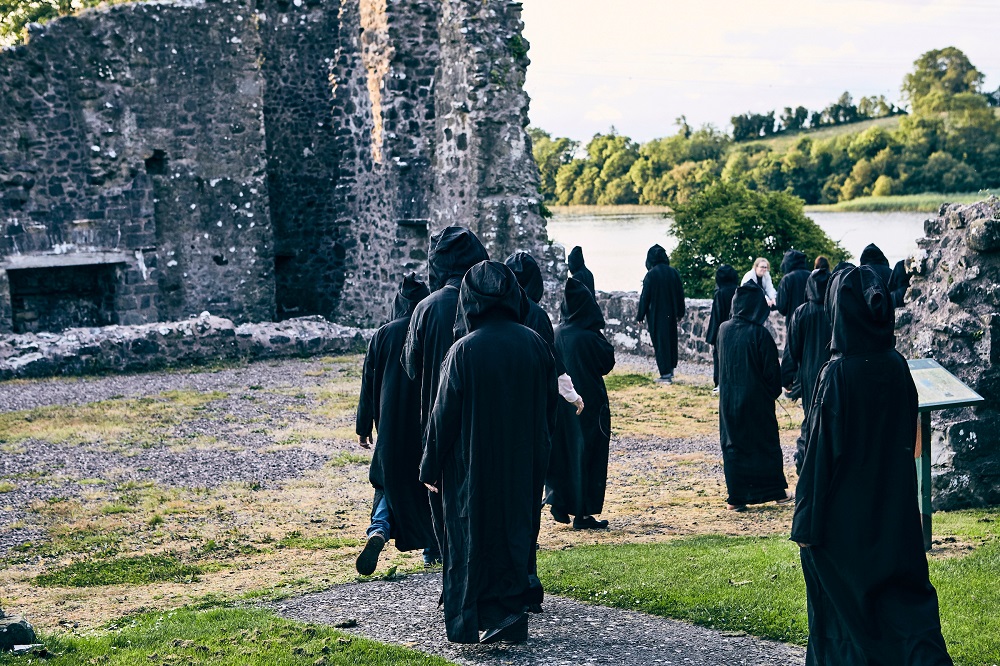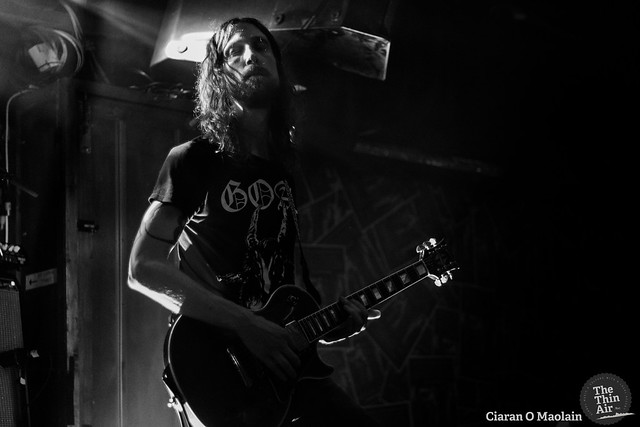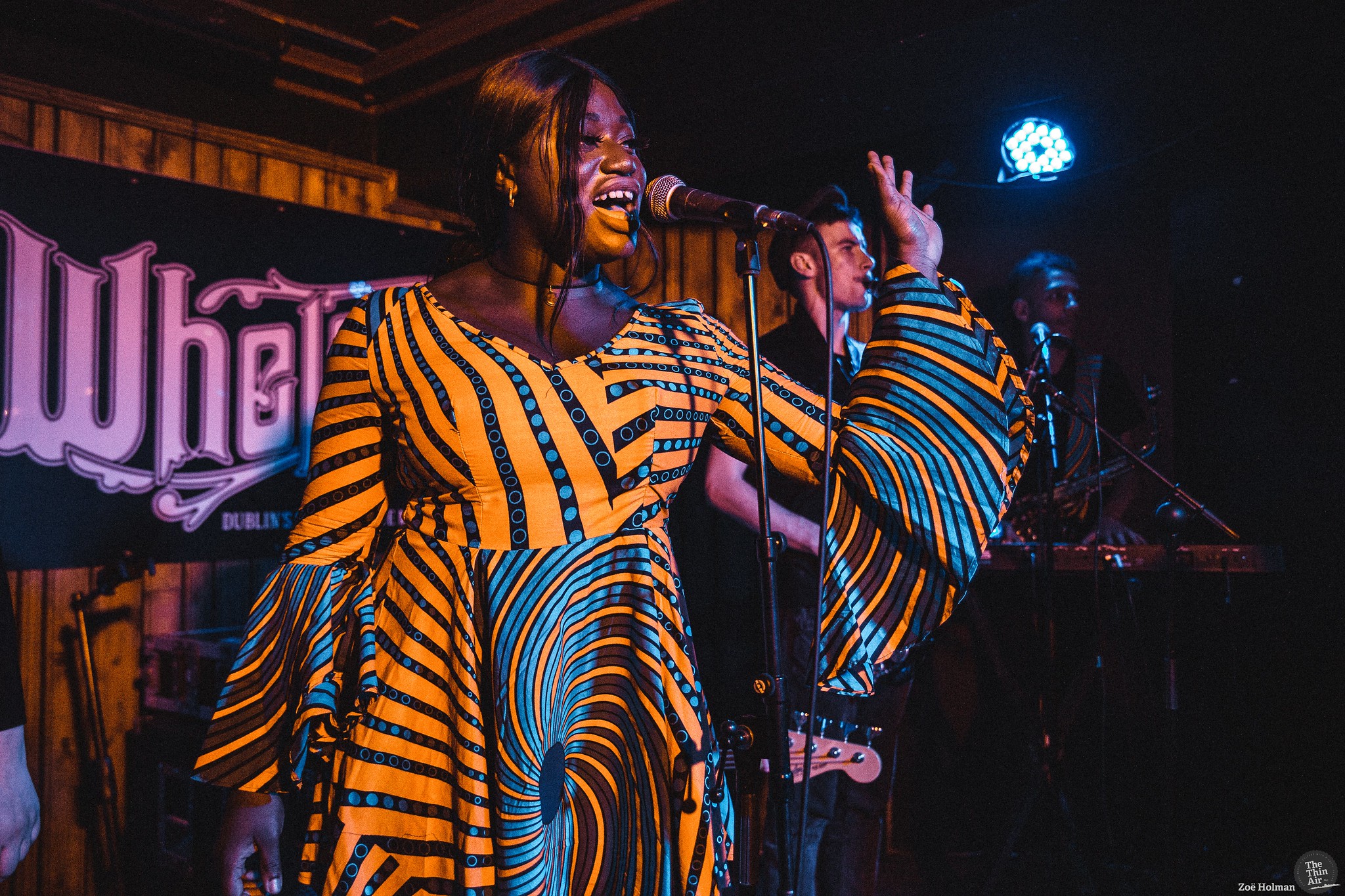It’s too far to see the expressions or to hear the reactions of the rowers gliding past as they observe twenty figures clad head to toe in black-hooded robes like Medieval monks, walking silently along the riverbank in single file. A penny too, for the thoughts of the two children, and their dog, on the opposing bank of The River Erne.
The ‘audience’ in this immersive piece of theatre is moving to the rhythms of Samuel Beckett’s radio play Cascando, headphones under hoods relaying this new interpretation by the award-winning Pan Pan Theatre. Created by Aedin Cosgrove and Gavin Quinn in 1993, Pan Pan Theatre has brought its innovative productions to audiences around the world, challenging theatre conventions with its experimental and highly individual approach. Much like Beckett.
Daniel Reardon plays Opener, whose brief interjections command Voice, played by Andrew Bennet, the narrator, who in turn guides the stumbling journey of Woburn. Written in French in 1962, the play Cascando, maps the relationship between the author and his protagonist, each fueling the other’s drive. It’s perhaps a little autobiographical – “I’m in there… somewhere”, says Voice. As with much of Beckett’s ouvre, the dilemma is whether to go on, or to throw in the hand.
Only here, it’s the narrator’s internal struggle to carry the story through to its conclusion, embodied in Woburn’s repeated falling down –“on purpose or not” – that holds the key to the drama.
Voice is obsessed with finishing the story, of finally resting. Then there will be “…no more stories…no more words…” But he cannot rest and there is always another one to start. And to finish.
The other protagonist in Cascando is the music. The original score for strings, composed by Marcel Mihalovici, lent a Hitchcockian tension to the text. For Pan Pan Theatre’s production, sound designer Jimmy Eadie imposes his personal stamp, with electronically manipulated strings that surge like powerful tides. His use of Shepard tone creates the sensation of the music rising and falling at the same time – the audio equivalent of an optical illusion – and adds to the surreality of the slow procession of the robed ‘audience’.
The procession begins at the back of Enniskillen Royal Grammar (formerly Royal Portora – Beckett’s old stomping ground) and the scenery plays its part, sympathetically, with the recording.
Just as Woburn navigates gentle slopes, trees and mud, so too, do the robed figures, winding their way along the undulating path through the trees. As Woburn “hugs the bank”, so too, do the robed figures, with the River Erne on their right. As the sound of the sea calls Woburn, so too, the River Erne, lapping against the bank, quietly serenades the robed, hooded ‘audience’.
Author, narrator, protagonist, music, ‘audience’ and scenery – both imagined and real – come together in curiously transfixing symbiosis. “From one world to another, it’s as though they drew together.”
The procession follows the undulating pathway, through sun-dappled trees and past a field of masticating cows to the ruins of Portora Castle. The dark figures circle the remains of the 17th century walls and round towers, like some strange, monastic cult on meditative pilgrimage, all the while listening to Woburn’s progress as he heads out to open sea.
Then, as Voice urges Woburn to the end, whatever the end is, the procession begins a long, gradual incline, back towards the beginning. “Then the return.” Woburn, and Voice, labor on, “As though they had linked their arms.” This time Voice is sure the end is near, the story almost complete. Then, only then, is it possible to rest. He urges Woburn on: “…we’re there…nearly…just a few more…don’t let go…Woburn…he clings on…come on…come on…”
In the final stretch the music increases in intensity, rising and falling simultaneously as though peaking and yet slipping backwards. Then there is silence.
There’s an odd lack of resolution to Cascando, but beginnings and endings were ambivalent in Beckett’s writing at the best of times. Cascando may have come to an end with silence and the removal of the black robes but Pan Pan Theatre’s striking dramaturgy will echo long in the memory. Ian Patterson
Photo: Courtesy of Matthew Andrews







